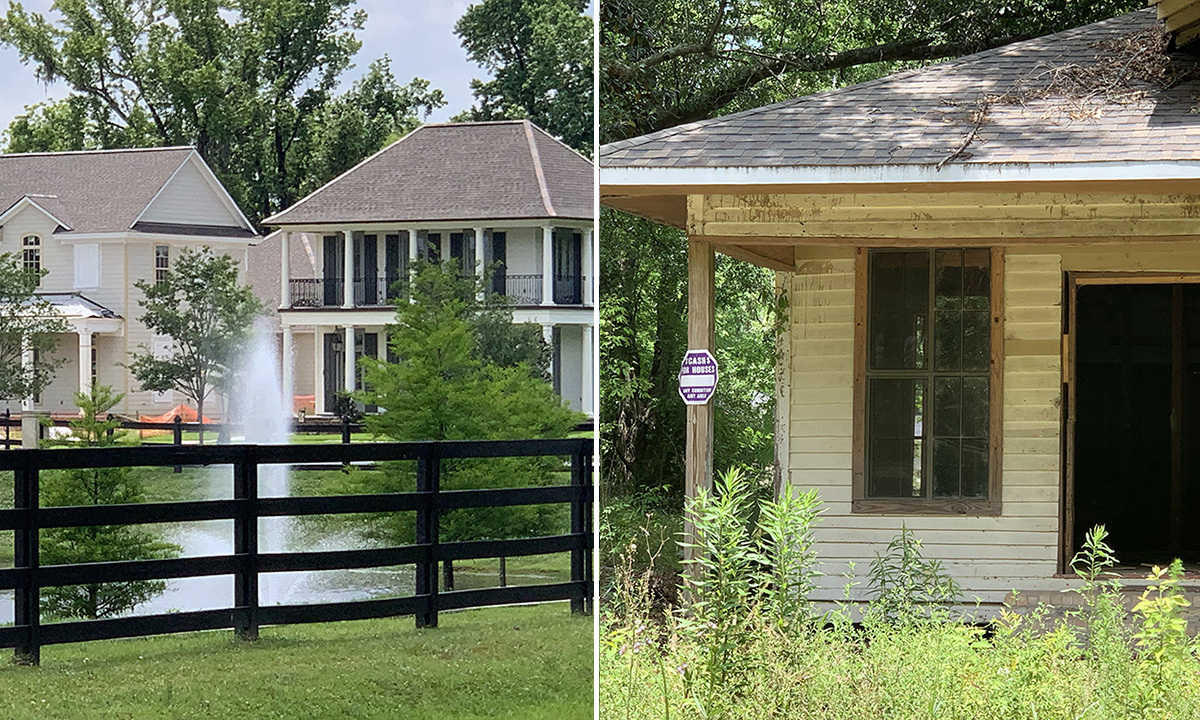Wealthier and Whiter: Louisiana School District Secession Gets a Major Boost
Court approves a 10-year effort to turn East Baton Rouge suburb into a new city — presumably with its own, far less impoverished, school system.

Help fund stories like this. Donate now!
Correction appended May 13
A recent decision by the Louisiana Supreme Court handed a decisive win to backers of a long-running campaign to create a new, overwhelmingly white Baton Rouge-area school system, further concentrating poverty in the remaining, majority-Black part of the district.
When finalized, the secession will likely cost East Baton Rouge Parish Public Schools 10,000 students and 25% of its $700 million budget, school board member and former board president Dadrius Lanus estimated.
“This is all rooted in institutional racism,” he said in an interview. “It’s about what white, middle-class people want for their kids.”
Barring complications, it will be the fifth time in nearly a quarter-century that part of the district has broken off and formed its own school system. Currently, the district — Louisiana’s second-largest — has 40,000 students. Ninety percent are impoverished.
A complicated tangle of laws governs the creation of new school districts, with the most straightforward path being the formation of a new municipality corresponding to the area seeking to break away. A decade ago, residents of the affluent southeast quadrant of the parish began campaigning to create a new city, St. George.
In 2019, 54% of the area’s residents voted to incorporate as a standalone municipality. Baton Rouge leaders sued, and in late April the state’s high court ruled in favor of the new city’s proponents. Republican Gov. Jeff Landry will now appoint St. George’s first mayor and five city council members.
The St. George area is represented by East Baton Rouge School Board member Nathan Rust, who backed the breakaway. Rust could not immediately be reached for comment, but his campaign website includes a statement decrying the condition of local schools.
“Our schools in District 6 are overcrowded and fraught with violence, disruption and an exodus of quality teachers,” it states. “After 20 years of Board Tenure, how is this the best public education offered to our children?” Many parents, it adds, “resort to spending their hard-earned money on private schools because they have no better option.”
In 2109, The 74 published a deep dive into a decades-long school integration scheme that shaped the district, the first four secessions and the potential implications of a St. George breakaway. Under the terms of a desegregation order — no longer in force — many East Baton Rouge students attend magnet schools that are spread throughout the district. Consequently, many children who live in the most impoverished neighborhoods — many still devastated by recent floods — attend schools in the St. George area.
According to Lanus, the existing district has 90 days to “annex” the 10 existing schools and two properties where it had planned to build schools within the new city’s boundaries — all of which were purchased or built by parish taxpayers. St. George residents would then have a choice: pay to build their own schools, or attempt to buy existing school facilities and lots from the East Baton Rouge district. As yet unknown is whether the district would be willing to sell and, if not, how many students would be bused into the new city to attend existing district schools.
The secession would also shift an unknown but significant amount of local tax revenue to the new city, further straining the East Baton Rouge district’s coffers. Lanus estimates the district will lose some $150 million in per-pupil state and federal aid, plus money that is supposed to flow to children in poverty, magnet school students and those receiving special education or gifted-and-talented services.
“I can’t tell you how many calls I’ve gotten from parents saying, ‘What’s going to happen to my kids?’ ” said Lanus. “We don’t have any time to waste.”
Correction: Dadrius Lanus’s term as East Baton Rouge Parish School Board president ended Jan. 11, 2024.
Help fund stories like this. Donate now!

;)
